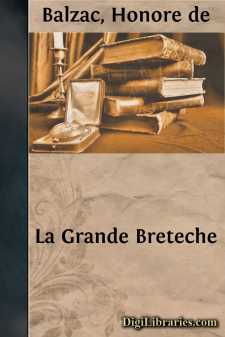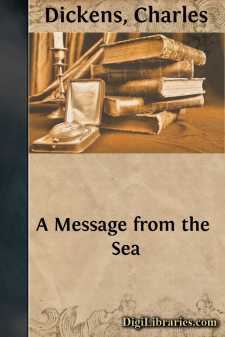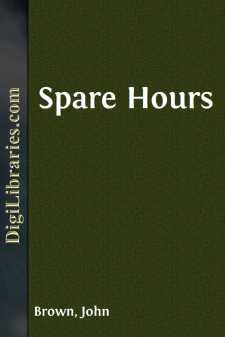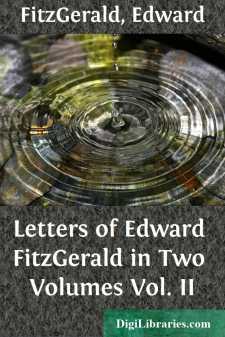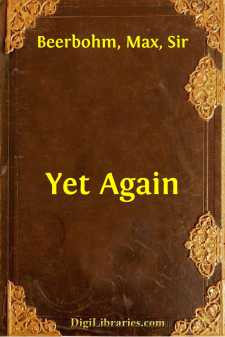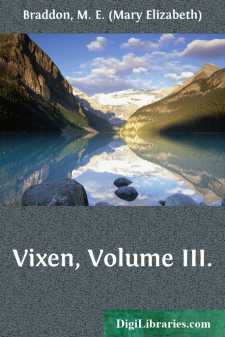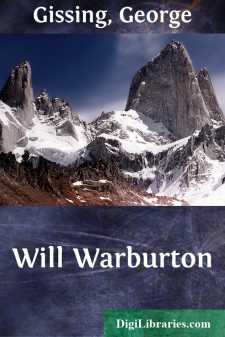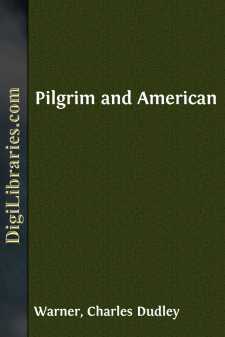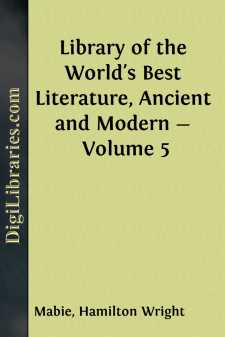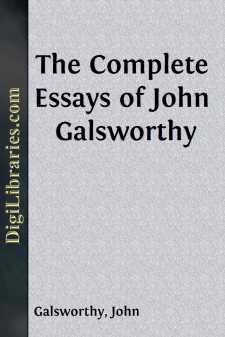Literary Collections
- American 84
- Ancient, Classical & Medieval 14
- Asian 1
- Australian & Oceanian 1
- Canadian 55
- Continental European 121
- English, Irish, Scottish, Welsh 179
- Essays 160
- General 24
- Letters 46
- Middle Eastern 1
Literary Collections Books
Sort by:
by:
Honore de Balzac
LA GRANDE BRETECHE "Ah! madame," replied the doctor, "I have some appalling stories in my collection. But each one has its proper hour in a conversation—you know the pretty jest recorded by Chamfort, and said to the Duc de Fronsac: 'Between your sally and the present moment lie ten bottles of champagne.'" "But it is two in the morning, and the story of Rosina has...
more...
by:
Charles Dickens
CHAPTER I—THE VILLAGE “And a mighty sing’lar and pretty place it is, as ever I saw in all the days of my life!” said Captain Jorgan, looking up at it. Captain Jorgan had to look high to look at it, for the village was built sheer up the face of a steep and lofty cliff. There was no road in it, there was no wheeled vehicle in it, there was not a level yard in it. From the sea-beach to the...
more...
by:
John Brown
NOTE TO THE AMERICAN EDITION. The author of “Rab and his Friends” scarcely needs an introduction to American readers. By this time many have learned to agree with a writer in the “North British Review” that “Rab” is, all things considered, the most perfect prose narrative since Lamb’s “Rosamond Gray.” A new world of doctors, clergymen, shepherds, and carriers is revealed in the...
more...
LETTERS OF EDWARD FITZGERALD To E. B. Cowell. 88 Gt. Portland St., London, Jan. 13/59. My dear Cowell, I have been here some five weeks: but before my Letter reaches you shall probably have slid back into the Country somewhere. This is my old Lodging, but new numbered. I have been almost alone here: having seen even Spedding and Donne but two or three times. They are well and go on as before. ...
more...
by:
Max Beerbohm
THE FIRE If I were 'seeing over' a house, and found in every room an iron cage let into the wall, and were told by the caretaker that these cages were for me to keep lions in, I think I should open my eyes rather wide. Yet nothing seems to me more natural than a fire in the grate. Doubtless, when I began to walk, one of my first excursions was to the fender, that I might gaze more nearly at...
more...
CHAPTER I. After a long sleepless night of tossing to and fro, Vixen rose with the first stir of life in the old house, and made herself ready to face the bleak hard world. Her meditations of the night had brought no new light to her mind. It was very clear to her that she must go away—as far as possible—from her old home. Her banishment was necessary for everybody's sake. For the sake of...
more...
by:
George Gissing
CHAPTER 1 The sea-wind in his hair, his eyes agleam with the fresh memory of Alpine snows, Will Warburton sprang out of the cab, paid the driver a double fare, flung on to his shoulder a heavy bag and ran up, two steps at a stride, to a flat on the fourth floor of the many-tenanted building hard by Chelsea Bridge. His rat-tat-tat brought to the door a thin yellow face, cautious in espial, through the...
more...
This December evening, the imagination, by a law of contrast, recalls another December night two hundred and seventy years ago. The circle of darkness is drawn about a little group of Pilgrims who have come ashore on a sandy and inhospitable coast. On one side is a vexed and wintry sea, three thousand miles of tossing waves and tempest, beyond which lie the home, the hedgerows and cottages, the church...
more...
OTTO EDWARD LEOPOLD VON BISMARCK (1815-) BY MUNROE SMITH tto Edward Leopold, fourth child of Charles and Wilhelmina von Bismarck, was born at Schönhausen in Prussia, April 1, 1815. The family was one of the oldest in the "Old Mark" (now a part of the province of Saxony), and not a few of its members had held important military or diplomatic positions under the Prussian crown. The young Otto...
more...
by:
John Galsworthy
THE INN OF TRANQUILLITY Under a burning blue sky, among the pine-trees and junipers, the cypresses and olives of that Odyssean coast, we came one afternoon on a pink house bearing the legend: "Osteria di Tranquillita,"; and, partly because of the name, and partly because we did not expect to find a house at all in those goat-haunted groves above the waves, we tarried for contemplation. To the...
more...


